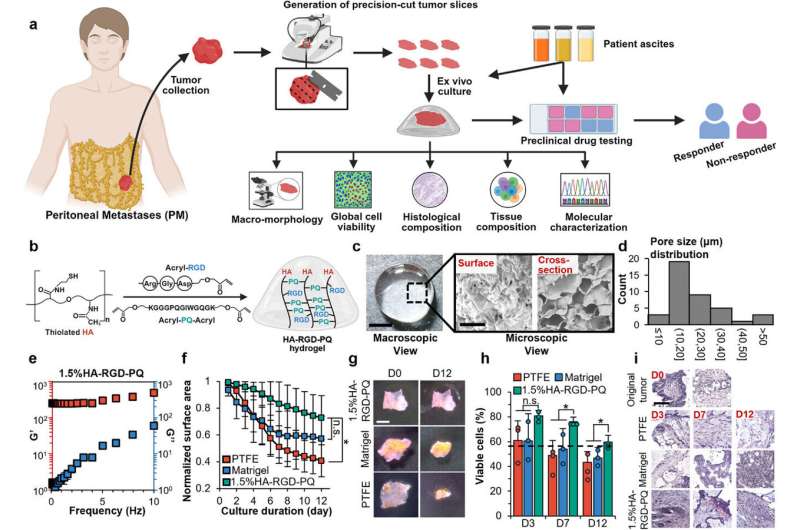The approach, which uses customizable bioengineered hydrogels, has been developed by a team led by Assistant Professor Eliza Fong from the Department of Biomedical Engineering in the College of Design and Engineering at the National University of Singapore (NUS) and the N.1 Institute for Health, and Associate Professor Johnny Ong from the Department of Sarcoma, Peritoneal and Rare Tumors (SPRinT) at Singapore General Hospital and the National Cancer Centre Singapore. The hydrogel closely mimics the body’s natural environment and can keep patient-derived tumor samples alive and structurally intact for over 12 days—more than twice as long as current methods.
The study was published on 20 May 2025 in the journal Advanced Materials.
Peritoneal metastases (PM) occur when cancer cells spread to the lining of the abdomen, often from advanced colorectal, ovarian or gastric cancers. Current treatment options are limited, and survival rates are typically low.

